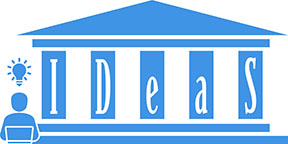
End of Year Roundup: Events
IDeaS held a number of informative events this year, building connections within the Social-cybersecurity field.
2nd Annual Conference

Center for IDeaS hosted our second annual conference virtually over two days in July 12-13, 2021. Sixteen teams of scholars presented their research in concurrent sessions. Two teams demonstrated new technologies and Center for IDeaS Knight Fellows presented their research to conference attendees.
Day one of the conference saw two expert panels, one on Platform Accountability and one on disinformation and a Keynote talk by Richard Stengel who discussed his experience combatting disinformation as the Undersecretary of State for Public Affairs and Public Diplomacy during the Obama administration.
Day two held two more panel discussions on hate speech and extremism online.
Hosting panels on separate, but related topics allowed our experts to refer back to each other and deepen the conversation as the conference went on. Panel discussions were conducted under the Chatham House rule, but there were some reoccurring themes that were touched on in more than one discussion.
- Access to more data
- While Facebook’s CrowdTangle and Data for Good initiatives are welcome, the amount of data available from social media is still severely limited, leaving academic and independent researchers with incomplete results.
- More conversation is needed
- The conversation about limiting speech and harm on social media has progressed over the last decade from whether social media platforms should moderate and fact check content posted on platforms, to what those policies should be. That is progress, and more conversations are needed to continue to shape, apply, and enforce policies.
- More regulation of big data and social media companies needed beyond Section 230
- While policy makers in Washington are focused on amending Section 230, conversations among researchers and industry professionals have moved on to what other regulations or rules may be needed. Being able to supply research to lawmakers and move the legislative process faster to keep up with changing technology would be beneficial for all
- AI may help, but it is not the only part of the answer
- While AI can do and will be able to do many things, human reviewers will still be need to make final determinations about moderating content.
- Increase in media literacy is needed
- Users of social media need to be educated about the media they consume, including determining credible sources, exposure to differing viewpoints. Media outlets may also need to be more transparent about how research for stories is done.
- Transparency from everyone is needed
- Social Media platforms, policy makers, journalists and researchers should be more transparent about how data is collected and used.
- Disinformation campaigns are not created solely by bad state actors. People are participating in creating and spreading disinformation, sometimes unknowingly, because the information confirms their experience, even if the information is wrong.
Summer Seminar
The second IDeaS Summer Institute hosted more than 40 individuals who participated to learn about aspects of social-cybersecurity.
Held over June 7-11, faculty discussed topics social-cybersecurity topics, IDeaS students demonstrated tools used to visualize data, and Knight Fellows presented their research. Twenty participants received certificates of completion for the week-long virtual event.
Available recordings are on YouTube
Inaugural Conference and Institute
Held in November 2020, the Center for IDeaS held its inaugural conference and institute virtually over three days. Social-cybersecurity in Times of Crisis featured panel discussions, tutorials and a film screening with director Leslie Iwerks.
IDeaS Seminar
The spring 2021 Seminar Series featured talks from
Dr. Osman Yagan, CMU
Dr. Rotem Guttman, CMU
Claire Leibowicz, Partnership on AI
Dr. Ashique KhudaBukhsh, CMU
Dr. Joshua Tucker, NYU
Vidhya Ramalingam, Moonshot CVE
Dr. Yu-Ru Lin, Pitt
Available recordings can be found on our YouTube Channel
